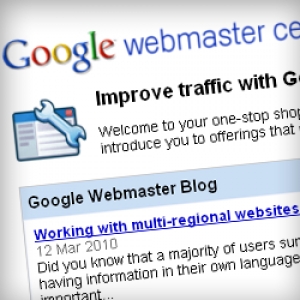Displaying items by tag: Joomla SEO
Here are some interesting Joomla blog posts I found during week 12:
• Join Our Google Summer of Code Success Story
• What motivates you motivates us!
• Keeping your Joomla web site safe with New Version notifications
• The OLD K2 community will soon close down...
• Joomla mobile templates from Joomlashine – What do they look like?
• Joomla SEO: Ten FAQs for newbies FAQs
• Joomla Jumps to the Enterprise
• How do I get to Joomla 2.5?
 SEO - or Search Engine Optimization - is a complex area of web development. I've been working with SEO for a number of years, and with Joomla and SEO for almost 4 years now.
SEO - or Search Engine Optimization - is a complex area of web development. I've been working with SEO for a number of years, and with Joomla and SEO for almost 4 years now.
In this post, I talk about ten important factors you should consider when optimizing your site.
For me, SEO is about what you do every day. SEO is a long term strategy - not a quick fix.
If you implement these factors, you will see increased search engine traffic to your site. All without breaking your neck performing them ;)
I have previously written several blog posts about Joomla and SEO.
The first one was Six steps to get your Joomla site indexed in Google. In the post, I talk about things you can do to make your Joomla site attractive in the most important search engine of them all.
A later post was the fourth in my series on Joomla meta tags which discussed how to check your Joomla meta tags in Google Webmaster Tools.
Both of the posts mention Google Webmaster Tools and how to use various functions of these useful tools.
I recently figured out, though, that many people have trouble understanding how to verify their Joomla website in Google Webmaster Tools.
By verifying your site with Google. you tell them that you are the owner of the website and that they may show details about the site to you. Without verifying your site you won't get access to a lot of the more advanced functions of Google Webmaster Tools.
Read on to get the full instructions on how to verify your Joomla site in Google Webmaster Tools.
This is the fourth part of a series of posts on how to work with meta elements in Joomla.
Meta tags are tags, or meta elements, that (mostly) contain information about the website or page which is not shown directly to the user.
In this part I will show you how to use the Google Webmaster Tools to monitor and improve your Joomla meta tags.
 This is the third part of a series of posts on how to work with meta elements in Joomla.
This is the third part of a series of posts on how to work with meta elements in Joomla.
Meta tags are tags, or meta elements, that (mostly) contain information about the website or page which is not shown directly to the user. In this part I will show you how to use the meta tag functionality in sh404SEF to improve your site SEO.
If you have the SEF (Search Engine Friendly) component sh404SEF installed, the meta tag management is more flexible than with the built-in Joomla solution. You will be able to enter meta tags for any page on your site. This involves for instance that you may enter meta elements for blog and section views, as well as for following pages automatically generated from these views (i.e. page-2, page-3 etc).
This is the first part of a series of blog posts exploring Joomla meta tags.
In this first post I'll look at what meta tags are and what they should be used for.
The other posts in the series examine how to set up the meta tags by using the Joomla core, and with third-party SEF extensions. As well as setting up Google Webmaster tools.
There are basically three ways of approaching search engine friendly (SEF) URLs in Joomla. Here, I explain these three methods of Joomla SEO and their pros and cons.
Search engine friendly URLs are very important if you want to achieve good positions in Google and other search engines. Firstly, the URLs are a lot easier to understand for the user (more likely to be clicked). Secondly, and most importantly, they will (if well-built) contain keywords that the search engine may use in the indexation of the page and thus improve your rankings for those words.




